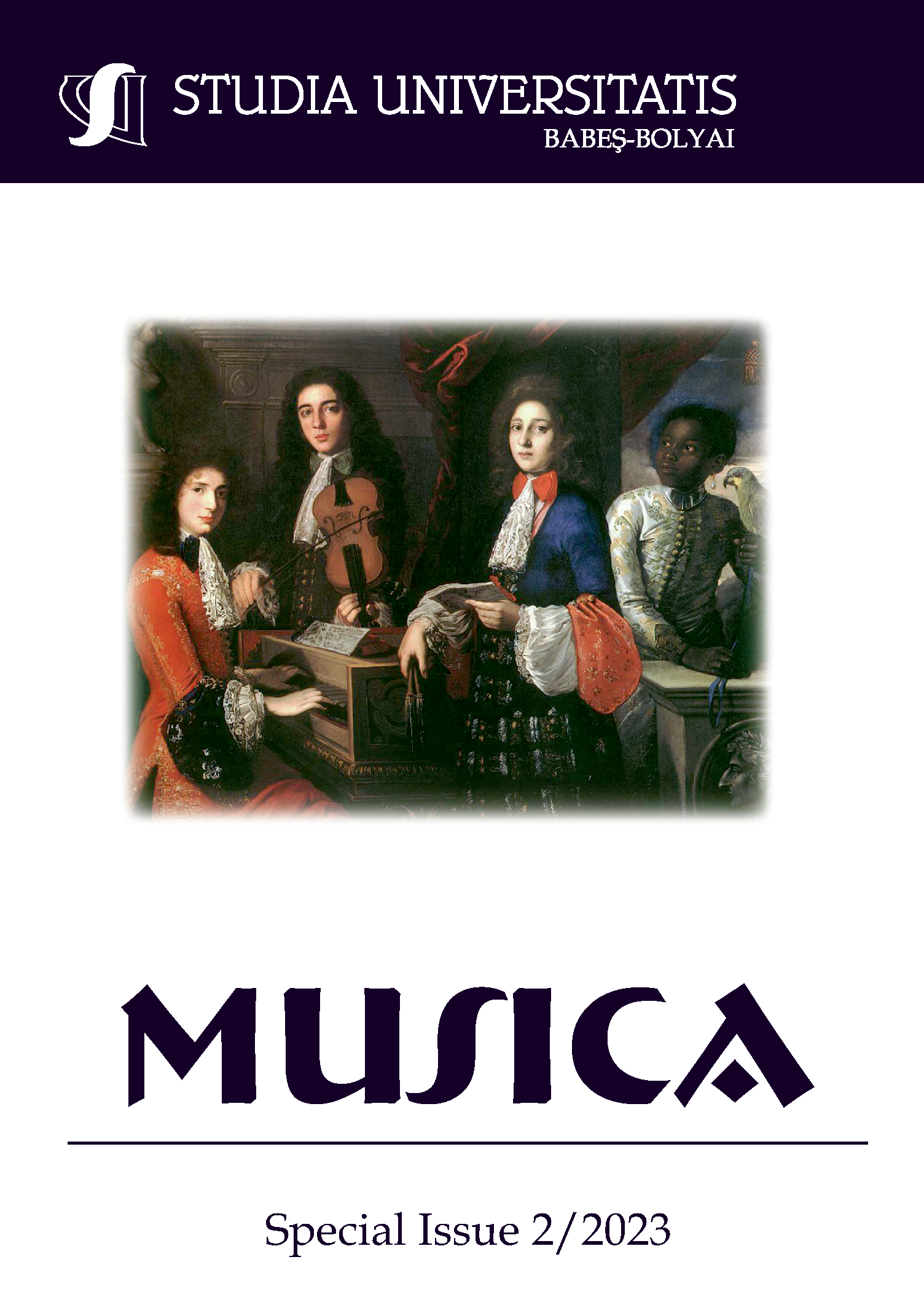MUSIC QUOTATION IN CONTEMPORARY NON-ACADEMIC ART: ASPECTS OF GENRE AND STYLE TRANSFORMATION
DOI:
https://doi.org/10.24193/subbmusica.2023.spiss2.07Keywords:
quote, citation, borrowing, autocitation, samples, cover, remake, collage, intertextuality.Abstract
The problematic field of the article focuses on aspects of genre and style transformation of well-known musical content that is recognizable and stylistically significant. In contemporary non-academic art, the established semantics of the original source is subject to change under the influence of a new creative rethinking, the possibilities of which are only increasing in the context of the technologies of the twenty-first century. These possibilities are embodied in various visual formats: from direct citation to borrowing or processing with its variations. The relevance of this topic lies in the need to study the phenomenon of citation as such, as well as to research and systematize other means of genre and style transformation of musical material. The direct object of the study is mostly music of the so-called “light” genres, music of mass culture, due to more mobile, transparent and visual observation opportunities. The author offers a self-made classification of possible methods of borrowing someone else’s text as a means of compositional technique, as well as of individual genres: cover, remake, borrowing, allusion, sampling. In the context of the study of the phenomenon of “musical text”, the peculiarities of realization and perception of the artistic and integral result are traced. As a result, several types of citation that have become widespread in contemporary music are distinguished.
References
Antonova, Olena. Autocitation as a Composer’s Look into the Past: Intentions of the Late Period of Creativity. In Journal of the Tchaikovsky National Music Academy of Ukraine: scientific journal, 2016. No. 1 (30). pp. 4–12.
Bilozub, Anastasiia. Intertextuality in postmodern artistic discourse http://litmisto.org.ua/?p=9124 (25/02/2023)
Gurbanska, Svitlana. Intertextual connections in postmodern discourse https://doi.org/10.18372/2520-6818.34.11456 (25/02/2023)
Kokhanik, Iryna. Intertextuality as a Basis for Dialogue in the Space of Contemporary Musical Culture (in Russian) In Kyiv musicology, 2013. – Issue 45. – pp. 68-93. Access mode: http://nbuv.gov.ua/UJRN/kmuz_2013_45_7 (25/02/2023)
Kokhanik, Iryna. Intertextuality and the Problem of Stylistic Unity of Musical Text // Musical text: practice and theory – Issue No. 7, 2001, pp. 90-95.
Kuzmina, Nataliia. Intertext and its role in the evolution of poetic language (in Russian). Yekaterinburg – Omsk, 1999.
Moskalenko, Viktor. Lectures on Musical Interpretation (in Russian). Kyiv, 2013.
Syuta, Galyna. Linguistic and Cognitive Mechanisms of Citation in a Modern Poetic Text. In Ukrainian language. 2014. No. 1. pp. 9 - 22.
Syuta, Bogdan. Status and types of citation in a musical text. In Bulletin of Kyiv National University of Culture and Arts, 2022, 5(2), pp. 141 - 152.
Savelieva, Elena. Peter Brueghel’s “Hunters in the Snow” as a metaphysical dream of the Earth in A. Tarkovsky’s “Solaris” (in Russian). In Bulletin of the Pushkin Leningrad State University, 2015.
Downloads
Published
How to Cite
Issue
Section
License
Copyright (c) 2023 Studia Universitatis Babeș-Bolyai Musica

This work is licensed under a Creative Commons Attribution-NonCommercial-NoDerivatives 4.0 International License.



